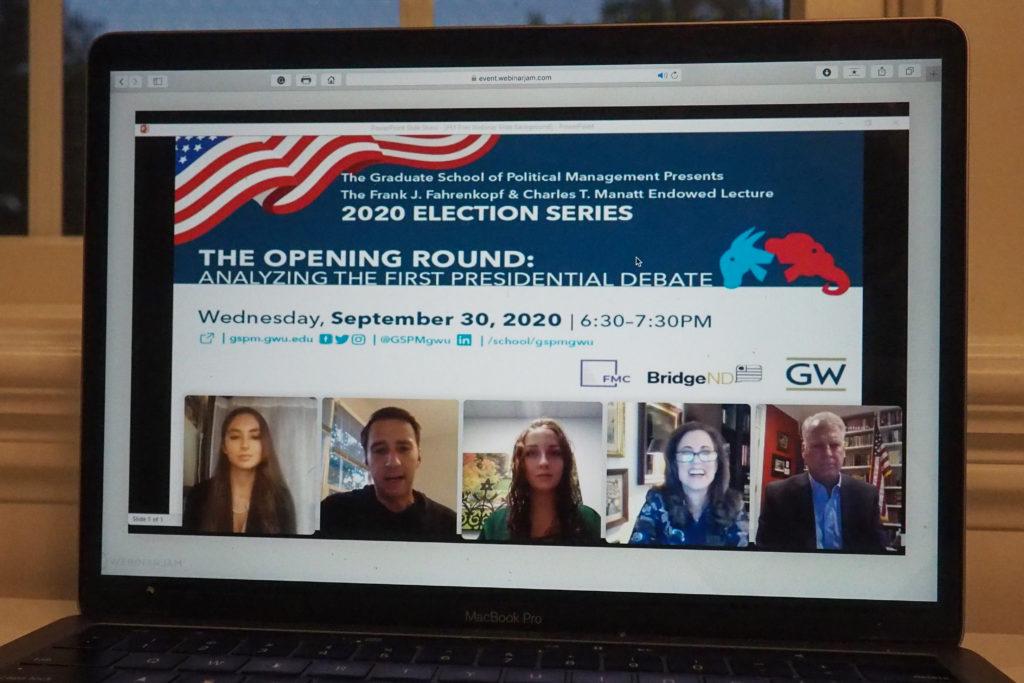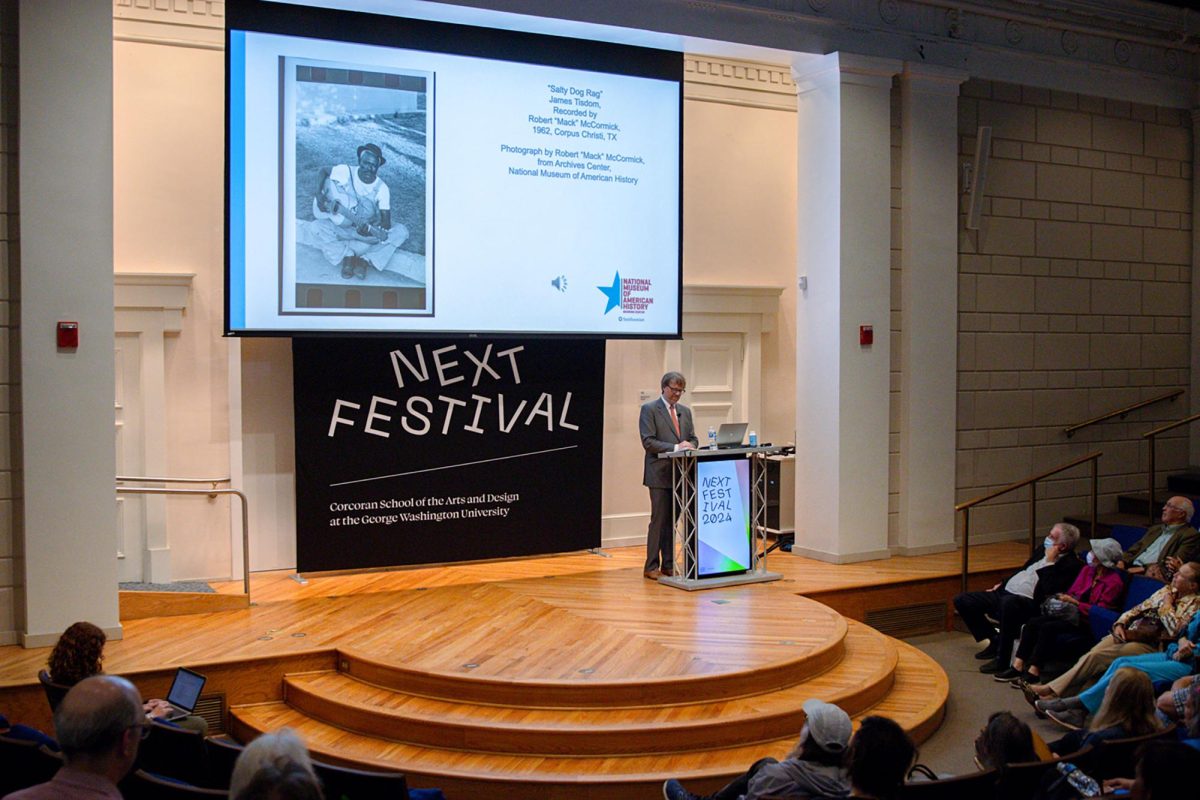The Graduate School of Political Management hosted a panel to discuss reactions to the first presidential debate and its impact on the race Wednesday.
The panel consisted of two former congressmen and two students from the University of Notre Dame, who discussed their takes on the debate and how the debates can be improved in the future. Lara Brown, the director of GSPM, hosted the panel, the third installment of the school’s Frank J. Fahrenkopf and Charles T. Manatt 2020 Election Series.
Lucie Kneip – a University of Notre Dame student and vice president of BridgeND, a multi-party club that emphasizes “productive” political discourse – said those overseeing the debate need to implement reforms related to how it is conducted. She said moderators should limit the content of what is “allowed to be discussed” during a debate instead of permitting candidates to bring up “personal family matters” or insulting the intelligence of their opponent.
“We need to create a culture of productivity, which is something that was definitely missing in last night’s debate,” Kneip said. “There was almost no substance to be found whatsoever.”
Kelly Harris, another University of Notre Dame student, said she agreed with the majority in CNBC’s poll, which found that 69 percent of voters said they were “annoyed” with how the debate unraveled. She said social media focused solely on the “spectacle” of the debate since there was not much “substance” for the media to report.
“The debate lacked substance and was essentially a screaming match between the two candidates for me,” she said. “I also agree with the statement that I saw that there were no winners. America is the one who lost.”
Former Rep. Ryan Costello, R-Pa., said many viewers get their news from a source that confirms their opinions, which he said will affect what commentary people hear about the debate’s events.
“The feedback loop they’re getting is the one they already want to hear,” Costello said. “And so the ability to impact, through other people’s interpretations how an event unfolded, I think is significantly diminished from where we were 20 years ago.”
Costello said contrary to Tuesday’s debate, candidates need to be “very careful” of how they interact with their opponent on a debate stage. He said voters will view one opponent making “character assassinations” of the other as irrelevant in a time of such heightened “cultural disruption and anxiety.”
“No one needs convincing that we are in a very chaotic, difficult time for a lot of people personally,” Costello said. “And so if you’re not a president offering a helpful message with some clarity and instead you’re just whacking your opponent, I just don’t think voters are going to buy that.”
Former ambassador to India and former Rep. Tim Roemer, D-Ind., said President Donald Trump missed a “huge opportunity” to offer any “substance” in the debate. He said if Trump talked about successes from his first term and what he plans for the second term, it could have helped him attract swing voters.
“He had the opportunity to say, ‘here’s what I’ve done in my first term,’” he said. “Whether you agree with Trump or not, and I disagree with virtually everything he’s done, he could say ‘I promised the tariff trade agreements, and I did it.’”








